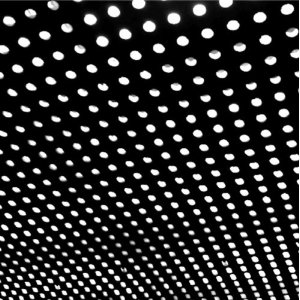Set against the depressingly transient nature of record company support for new music, if any band gets to album number four they must be doing something right. And, as in the case of Baltimore’s Beach House, if that band has slowly and steadily built a fanbase with each of their previous three records, they have achieved something very special.
But, forget the ‘difficult second album syndrome’, it is a fourth album that can be a real bastard to nail down. By then the groundwork has been laid and for the vast majority of artists a blueprint of sonic DNA will demarcate, differentiate or, more commonly, pigeon-hole them in the minds of their paying public. When concocting album number four there is a sense that bands can either stick or twist.
On their fourth album, Bloom, Beach House have stuck steadfastly to their dramatic take on dream pop. And, let’s be clear, Bloom is a perfectly good record. It’s probably Beach House’s finest set of songs to date. It’s certainly their most realised; it oozes with self-belief and a dogged commitment to perfection. Beach House fans are guaranteed to love it unconditionally. However, Bloom is unlikely to convince the non-believers and that feels like an opportunity missed.
A few weeks ago I interviewed Beach House’s Alex Scally and Victoria Legrand for The Line Of Best Fit. They are both ludicrously sweet – the sort of well-mannered, earnest thinkers that parents can only dream up as potential future in-laws. During our chat, first Alex and then Victoria were at pains to convey just how completely different Bloom was from its breakthrough predecessor, 2010’s Teen Dream. They talked about the power, intensity and scope of the new songs and how, lyrically, they had attempted to make each track an entire story. Alex described how they wanted Bloomto have a "singular vision" similar to Pet Sounds and, rather charmingly, Depeche Mode’s Violator. Their promotional spiel sounded impressive, and would resonate with more persuasive power if Bloom didn’t sound so, um, Beach Housey.
The album opens with lead single ‘Myth’. It’s an admittedly glorious track and sets out the Beach House stall for the remaining album. After a few seconds of introspective inhaling, a huge swoosh of melody sweeps through the remaining four minutes of star-seeking, daydream noise. Bloom then serves up a trio of tracks – ‘Wild’, ‘Lazuli’ and ‘Other People’ – which all manage that same trick; each song is a mid-paced power-plod containing a viciously atmospheric hook that allows Legrand’s vocal to titrate passion at opportune moments. It’s an impressive first 20 minutes, but Bloom‘s weakness is an increasing sense of familiarity. Songs begin to blend into one another; there is little change in pace, structure or emotional temperature.
Bloom was produced by Chris Coady in sessions recorded in Texas and mixed in New York. When I asked Alex about how the success of Teen Dream had impacted Beach House, he revealed that the main benefit had been to allow them to spend more money on making Bloom. The final tracks were recorded over a nine-week period, which was three times longer than they had taken on any previous album. And it shows. Bloom is more polished, more expansive and more OCD-tweaked than any previous Beach House album. Having worked with them on Teen Dream, Coady is both their comfort blanket and a taskmaster to attain the perfect take. It’s a marvellously executed album but utterly within Scally and Legrand’s comfort zone. And I don’t care what they might argue to the contrary.
This all means that Bloom is an odd beast. The strength of songwriting should ensure that Beach House continue on their gentle trajectory. There is much to admire over the course of its ten (or so…) tracks but as the closing ‘Irene And Wherever You Go’ builds to an overwrought climax, the familiar song construction and unrepentant earnestness have a toll to take. There is a long history of thoroughly good bands churning out subtle reworkings of their core sound and surpassing themselves – any fifth Beach House album will need to convey just how good Scally and Legrand are prepared to be. Bloom is in part brilliant but maddeningly safe and, ultimately, is a decidedly unsatisfying listen.


